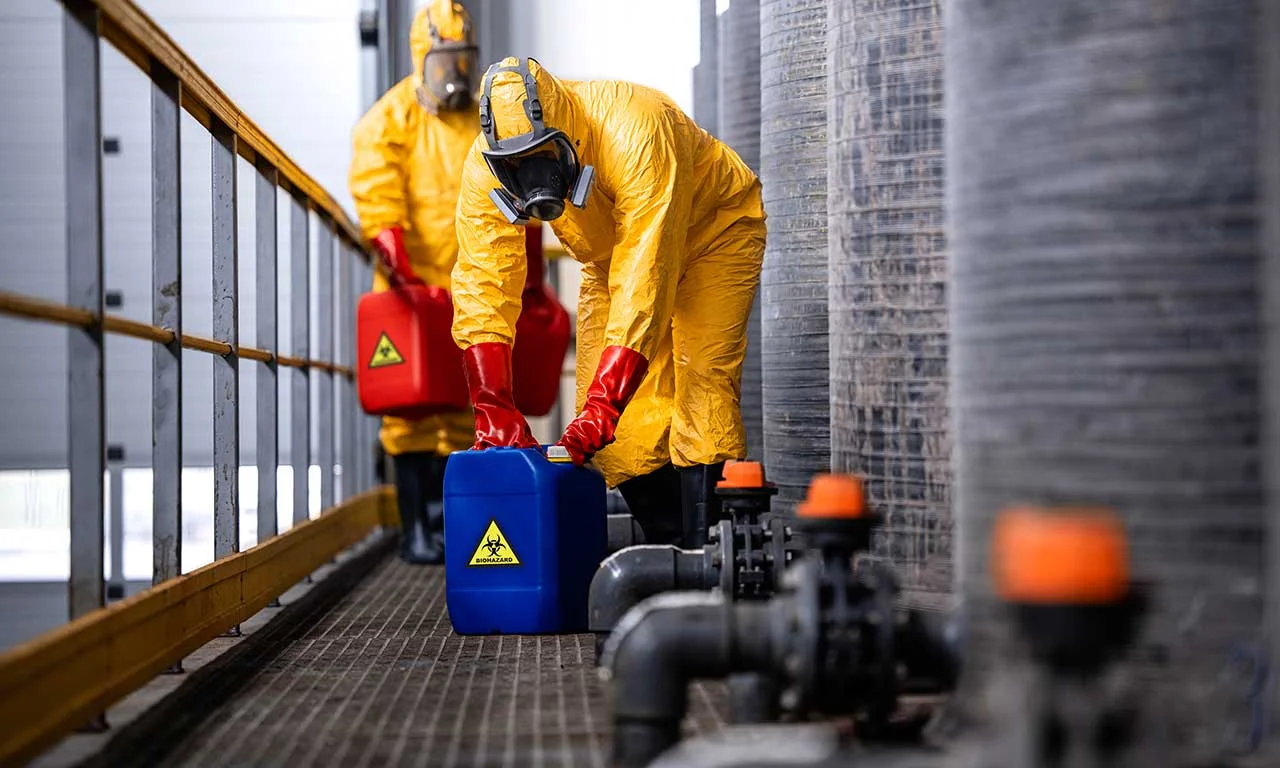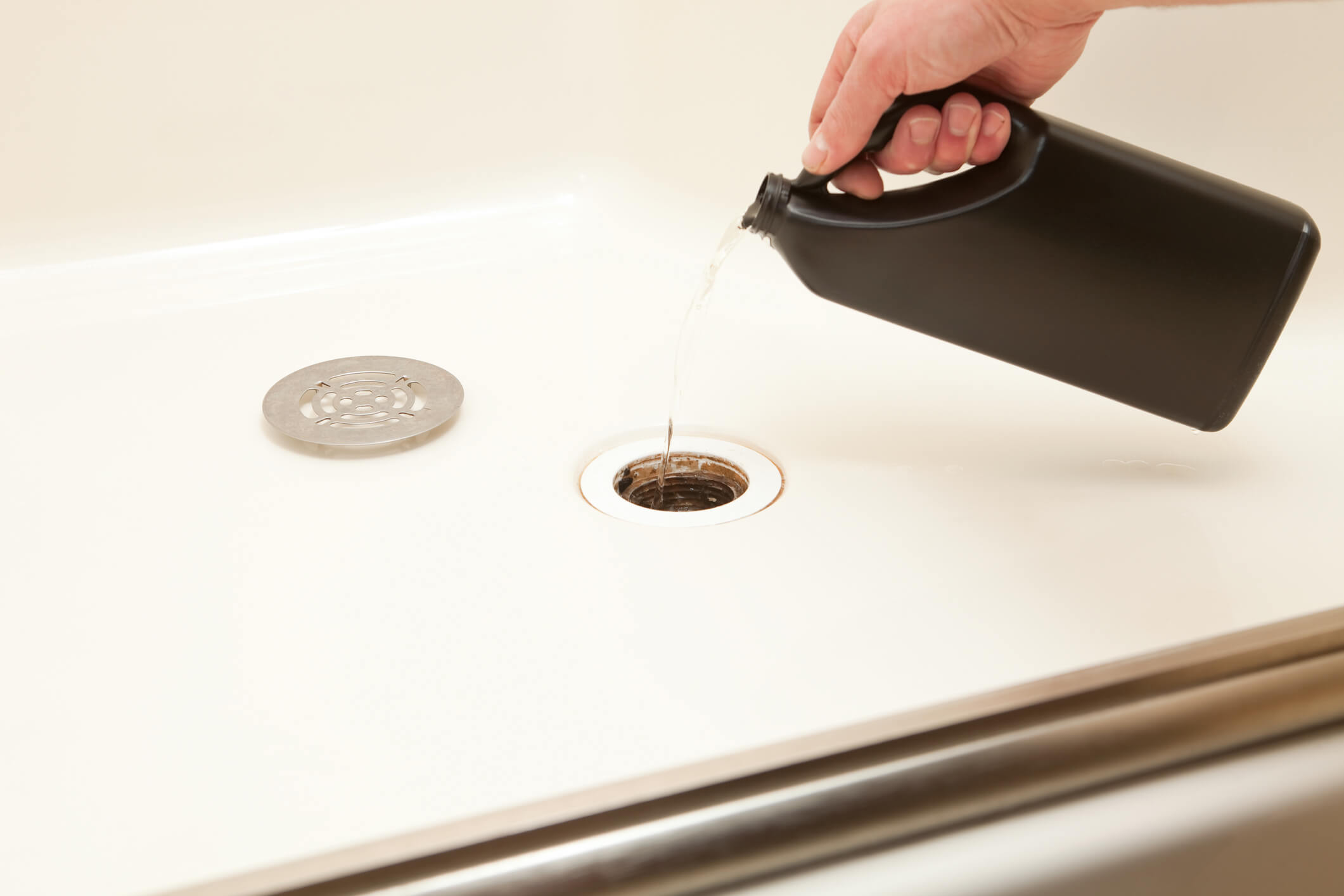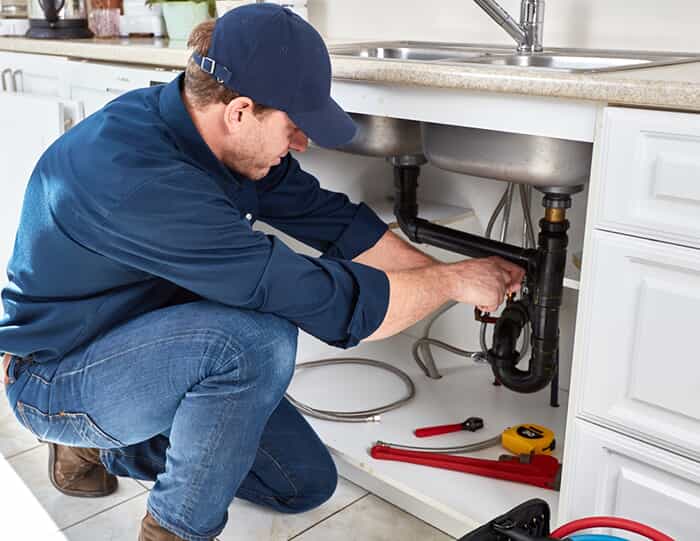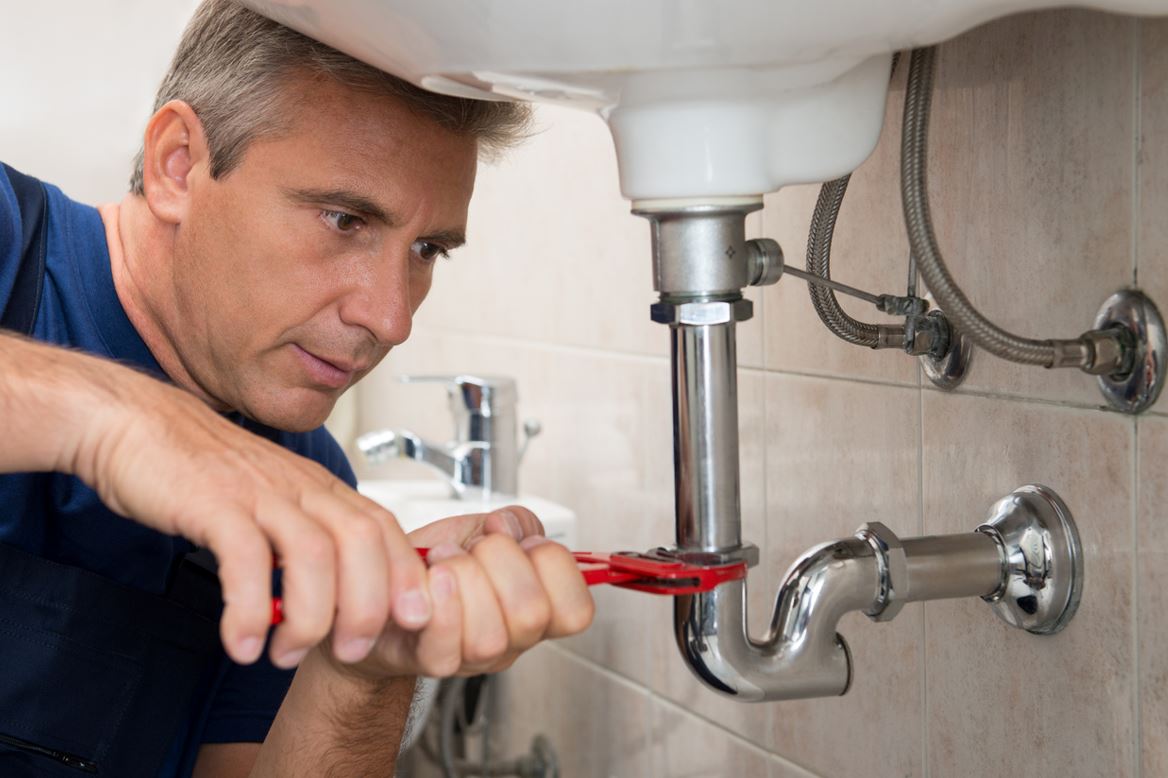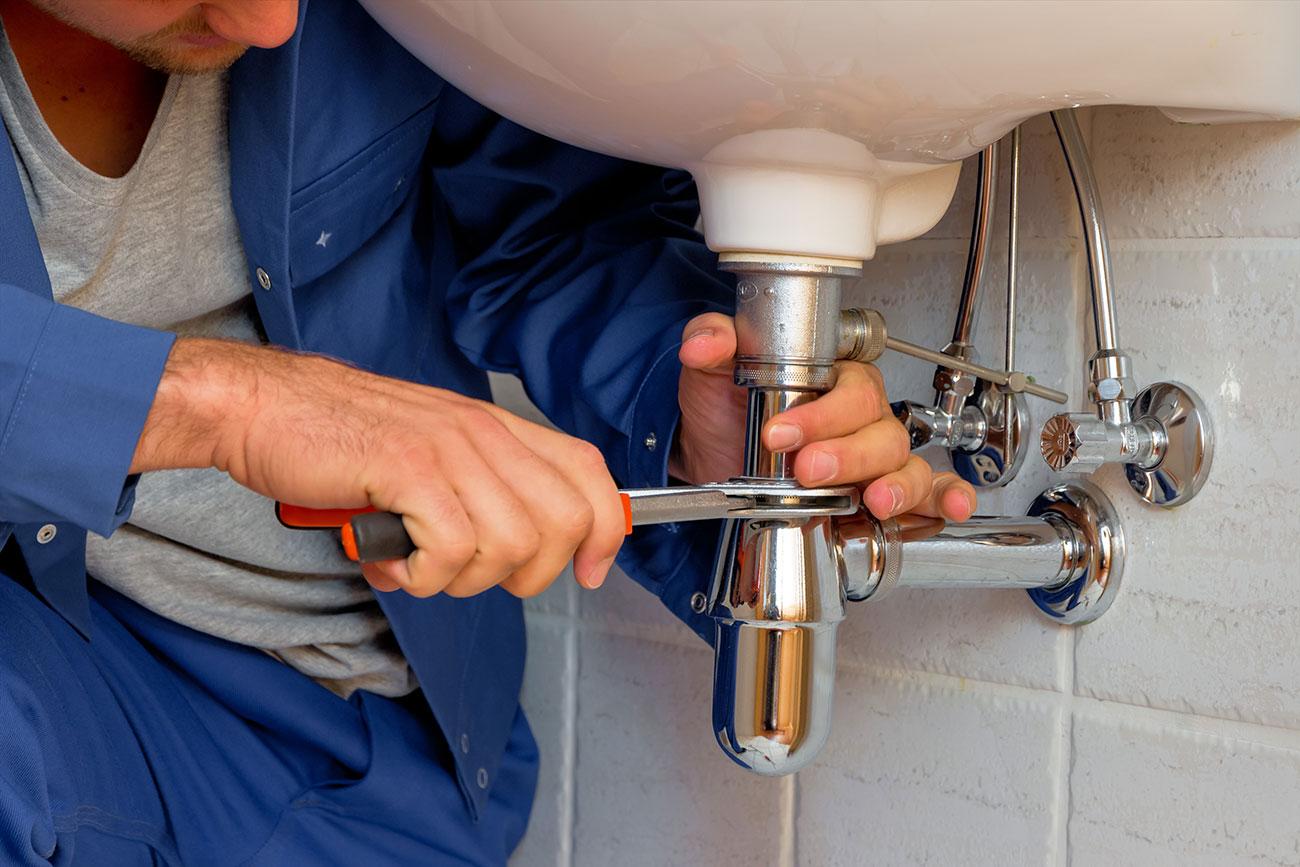If you've ever experienced water backing up into your kitchen sink, you know how frustrating and inconvenient it can be. Not only does it make it difficult to use your sink, but it can also lead to unpleasant odors and potential damage to your plumbing system. In this article, we'll explore the top 10 causes of kitchen sink backups and provide solutions to help you fix and prevent this issue.Plumbing Issues: Water Backing Up Into Kitchen Sink
The first step in fixing a backed up kitchen sink is to determine the cause. This will help you determine the best solution for the problem. In some cases, a simple DIY solution may be all that's needed, while in other cases, professional plumbing services may be necessary.How to Fix a Backed Up Kitchen Sink
There are several common causes of kitchen sink backups, including clogged drains, damaged pipes, and issues with your plumbing system's venting. Food scraps, grease, and other debris can easily get stuck in your drain, causing a clog. Damaged pipes, such as those with cracks or tree root intrusion, can also lead to backups. Additionally, if your plumbing system's venting is not functioning properly, it can cause air pressure imbalances and result in water backing up into your sink.Common Causes of Kitchen Sink Backups
If you suspect a clogged drain is the cause of your kitchen sink backup, there are a few DIY solutions you can try before calling a professional plumber. One option is to use a plunger to try and dislodge the clog. Another option is to use a homemade mixture of vinegar and baking soda, which can help break up and dissolve the clog. However, be cautious when using chemical drain cleaners, as they can be harsh on your plumbing system and the environment.DIY Solutions for a Backed Up Kitchen Sink
In some cases, DIY solutions may not be enough, and you may need to call a professional plumber to fix your backed up kitchen sink. Plumbers have specialized tools and equipment that can effectively remove stubborn clogs and repair any damaged pipes. They can also inspect your plumbing system to determine the root cause of the backup and provide long-term solutions to prevent it from happening again.Professional Plumbing Services for Kitchen Sink Backups
Prevention is key when it comes to kitchen sink backups. One simple way to prevent clogs is to avoid putting food scraps and grease down your drain. Instead, scrape food scraps into the garbage and dispose of grease in a separate container. Regularly cleaning your drain with a mixture of hot water and vinegar can also help prevent buildup and clogs. Additionally, be mindful of what you flush down your garbage disposal to avoid damaging it.Preventing Kitchen Sink Backups: Tips and Tricks
It's important to be aware of the signs of a clogged kitchen sink drain so you can address the issue before it becomes a major problem. Common signs include slow-draining water, gurgling noises, and unpleasant odors coming from your sink. If you notice any of these signs, it's best to address the issue sooner rather than later to avoid a complete backup.Signs of a Clogged Kitchen Sink Drain
If you decide to try using a plunger to clear a backed up kitchen sink, it's important to use the right technique. Start by filling your sink with a few inches of water, then place the plunger over the drain and create a seal. Push and pull the plunger up and down to create suction and hopefully dislodge the clog. If this doesn't work, it may be time to call a professional plumber.Using a Plunger to Clear a Backed Up Kitchen Sink
When it comes to clearing clogged drains, there are two main options: chemical drain cleaners or natural remedies. While chemical drain cleaners may provide a quick fix, they can also be harsh on your plumbing system and the environment. Natural remedies, such as vinegar and baking soda, may take longer to work but are often a safer and more environmentally friendly option.Chemical Drain Cleaners vs. Natural Remedies for Kitchen Sink Backups
If you've tried DIY solutions and your kitchen sink is still backing up, it's time to call a professional plumber. They have the expertise and tools to effectively diagnose and fix the issue. Additionally, if you notice any signs of a more serious problem, such as water damage or foul odors, it's best to call a plumber right away to prevent further damage and potential health hazards.When to Call a Plumber for a Backed Up Kitchen Sink
How to Solve the Issue of Water Backing Up into Your Kitchen Sink
Common Causes of Water Backing Up into Kitchen Sink
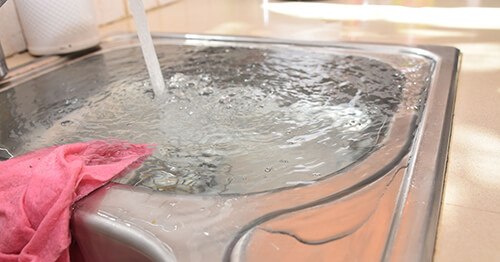 One of the most frustrating and common issues homeowners face in their kitchen is water backing up into the sink. This can be a major inconvenience and can disrupt your daily activities in the kitchen. The main cause of this problem is usually a clog in the plumbing system, but there can be other underlying issues as well.
One of the most frustrating and common issues homeowners face in their kitchen is water backing up into the sink. This can be a major inconvenience and can disrupt your daily activities in the kitchen. The main cause of this problem is usually a clog in the plumbing system, but there can be other underlying issues as well.
Identifying the Source of the Problem
 If you are experiencing water backing up into your kitchen sink, the first step is to identify the source of the issue. This will help you determine the best course of action to solve the problem. The most common causes include a clogged sink drain, a clogged garbage disposal, or a clogged sewer line.
If you are experiencing water backing up into your kitchen sink, the first step is to identify the source of the issue. This will help you determine the best course of action to solve the problem. The most common causes include a clogged sink drain, a clogged garbage disposal, or a clogged sewer line.
How to Unclog a Sink Drain
/water-overflowing-in-kitchen-sink-200553937-001-5797e6335f9b58461f5a6736.jpg) If your sink drain is the culprit, you can try using a plunger to dislodge the clog. Place the plunger over the drain and push up and down vigorously. If this does not work, you can try using a drain snake or a mixture of baking soda and vinegar to break up the clog. If these methods do not work, it may be best to call a professional plumber.
If your sink drain is the culprit, you can try using a plunger to dislodge the clog. Place the plunger over the drain and push up and down vigorously. If this does not work, you can try using a drain snake or a mixture of baking soda and vinegar to break up the clog. If these methods do not work, it may be best to call a professional plumber.
Clearing a Clogged Garbage Disposal
 If your garbage disposal is causing water to back up into your sink, the first step is to turn off the power to the disposal. Then, use tongs or pliers to remove any visible debris from the disposal. Next, run hot water and turn on the disposal to see if the clog has cleared. If not, you may need to call a professional for further assistance.
If your garbage disposal is causing water to back up into your sink, the first step is to turn off the power to the disposal. Then, use tongs or pliers to remove any visible debris from the disposal. Next, run hot water and turn on the disposal to see if the clog has cleared. If not, you may need to call a professional for further assistance.
Dealing with a Clogged Sewer Line
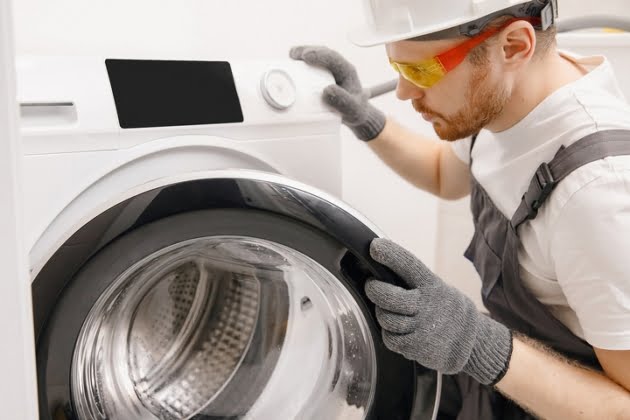 A clogged sewer line is a more serious issue that may require professional help. If you notice water backing up into multiple drains in your home, it is likely that your main sewer line is clogged. In this case, it is best to call a plumber who can use specialized tools to clear the clog and prevent future backups.
A clogged sewer line is a more serious issue that may require professional help. If you notice water backing up into multiple drains in your home, it is likely that your main sewer line is clogged. In this case, it is best to call a plumber who can use specialized tools to clear the clog and prevent future backups.
Preventing Future Backups
 To avoid future water backups into your kitchen sink, it is important to maintain your plumbing system. This includes regularly cleaning your sink drain and garbage disposal, avoiding putting large food scraps down the drain, and being mindful of what you flush down your toilet. It is also a good idea to have your sewer line inspected and cleaned by a professional every few years.
Don't Let a Clogged Sink Drain Ruin Your Day
Water backing up into your kitchen sink can be a major inconvenience, but it is a problem that can be solved with the right knowledge and tools. By identifying the source of the issue and taking preventative measures, you can keep your kitchen sink running smoothly and avoid future backups. If the problem persists, do not hesitate to call a professional for assistance.
To avoid future water backups into your kitchen sink, it is important to maintain your plumbing system. This includes regularly cleaning your sink drain and garbage disposal, avoiding putting large food scraps down the drain, and being mindful of what you flush down your toilet. It is also a good idea to have your sewer line inspected and cleaned by a professional every few years.
Don't Let a Clogged Sink Drain Ruin Your Day
Water backing up into your kitchen sink can be a major inconvenience, but it is a problem that can be solved with the right knowledge and tools. By identifying the source of the issue and taking preventative measures, you can keep your kitchen sink running smoothly and avoid future backups. If the problem persists, do not hesitate to call a professional for assistance.
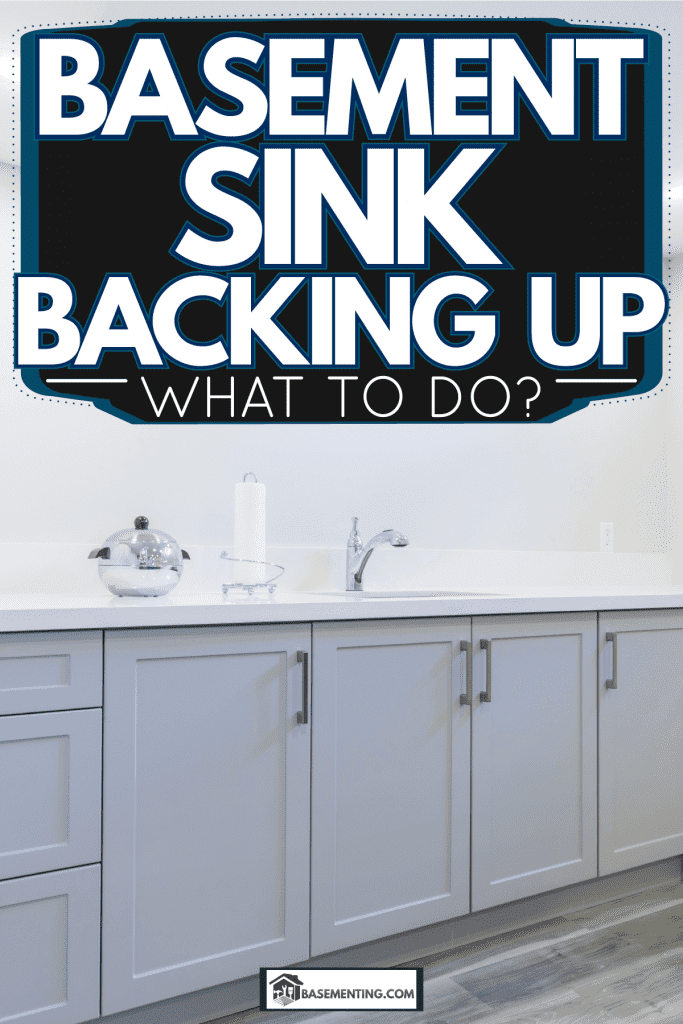


/how-to-install-a-sink-drain-2718789-hero-24e898006ed94c9593a2a268b57989a3.jpg)

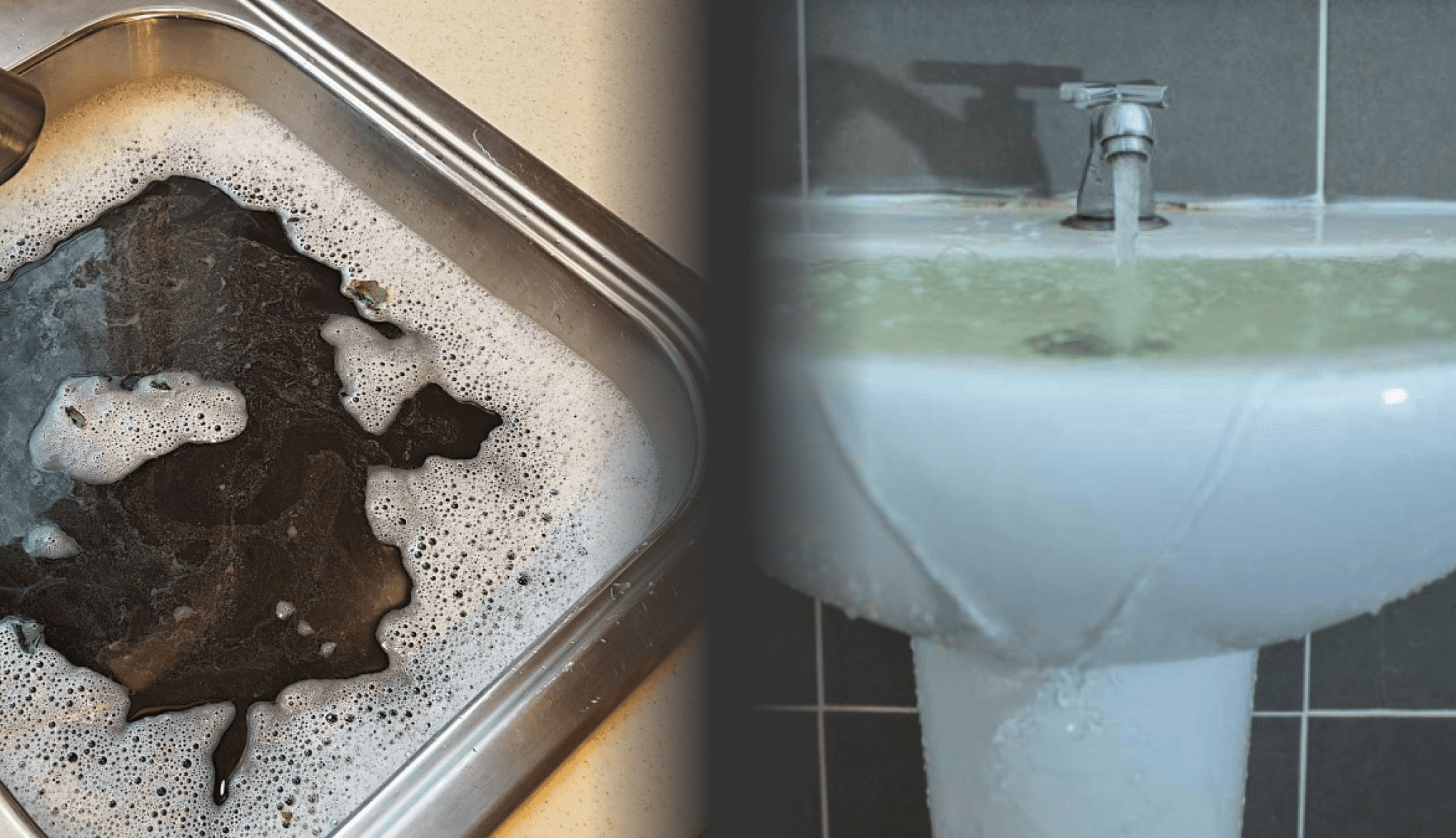
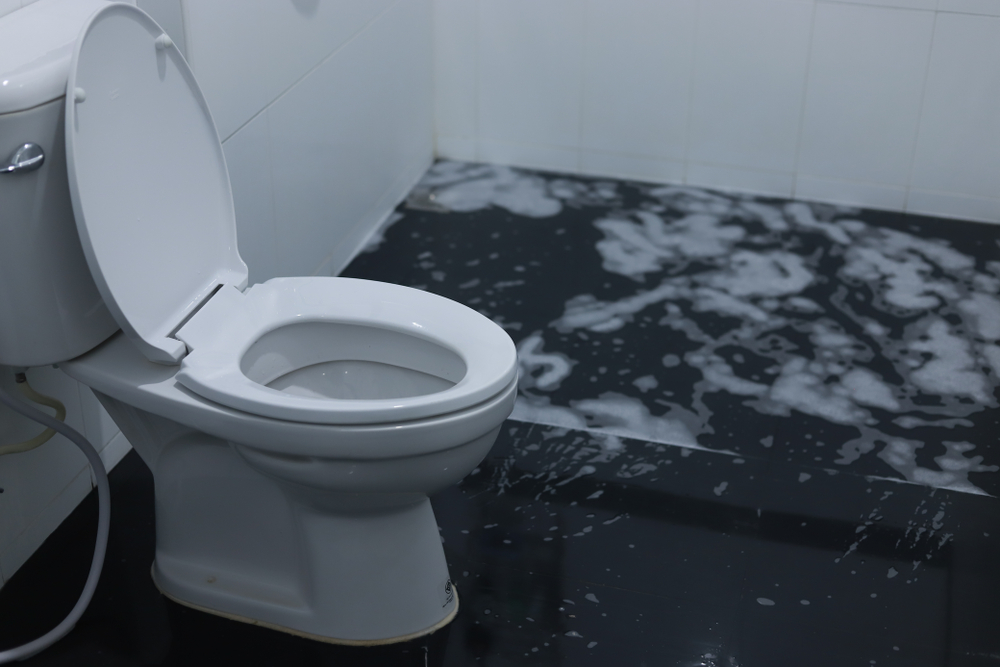

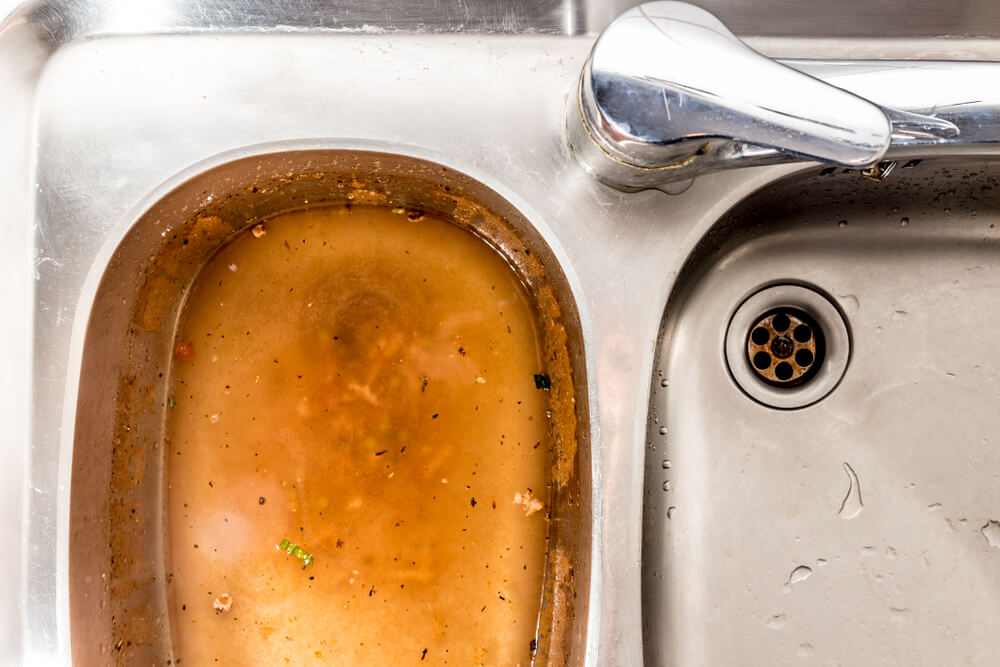



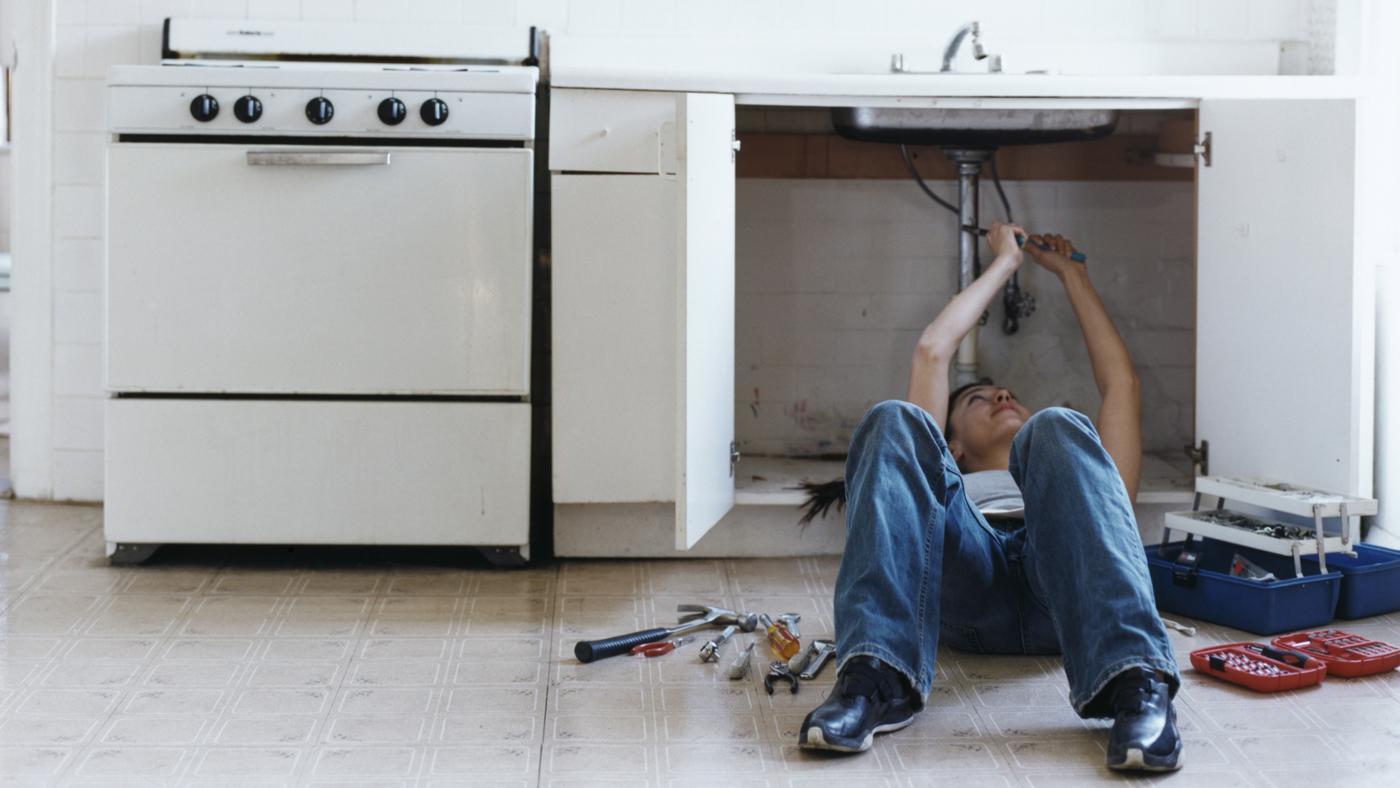







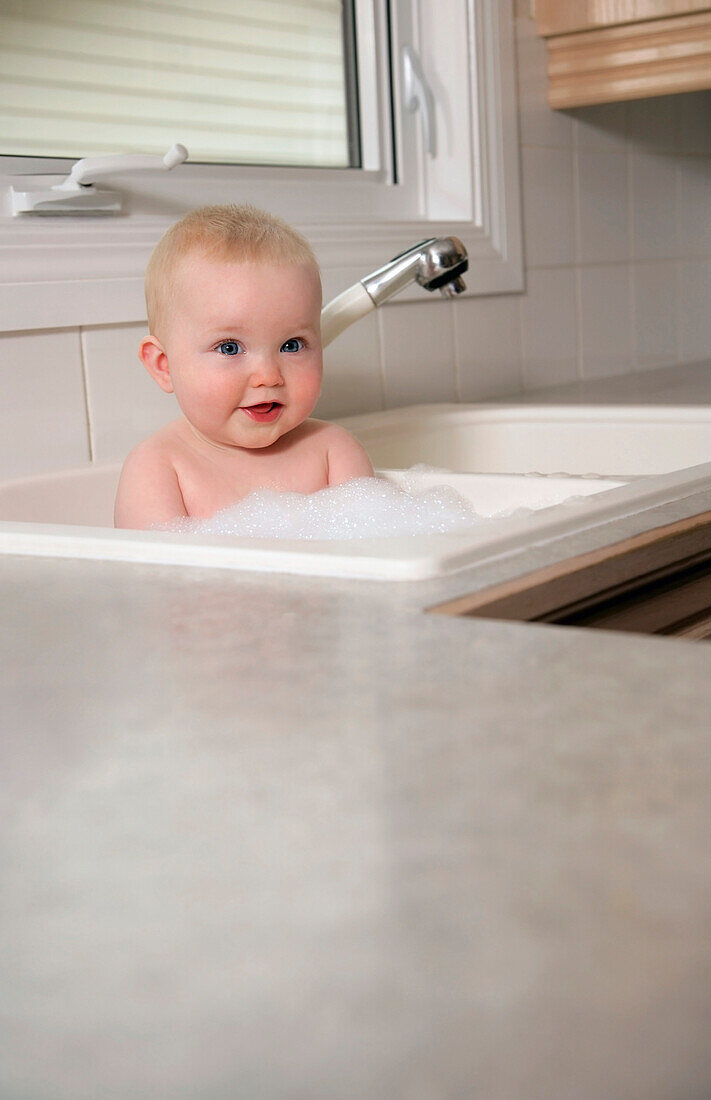





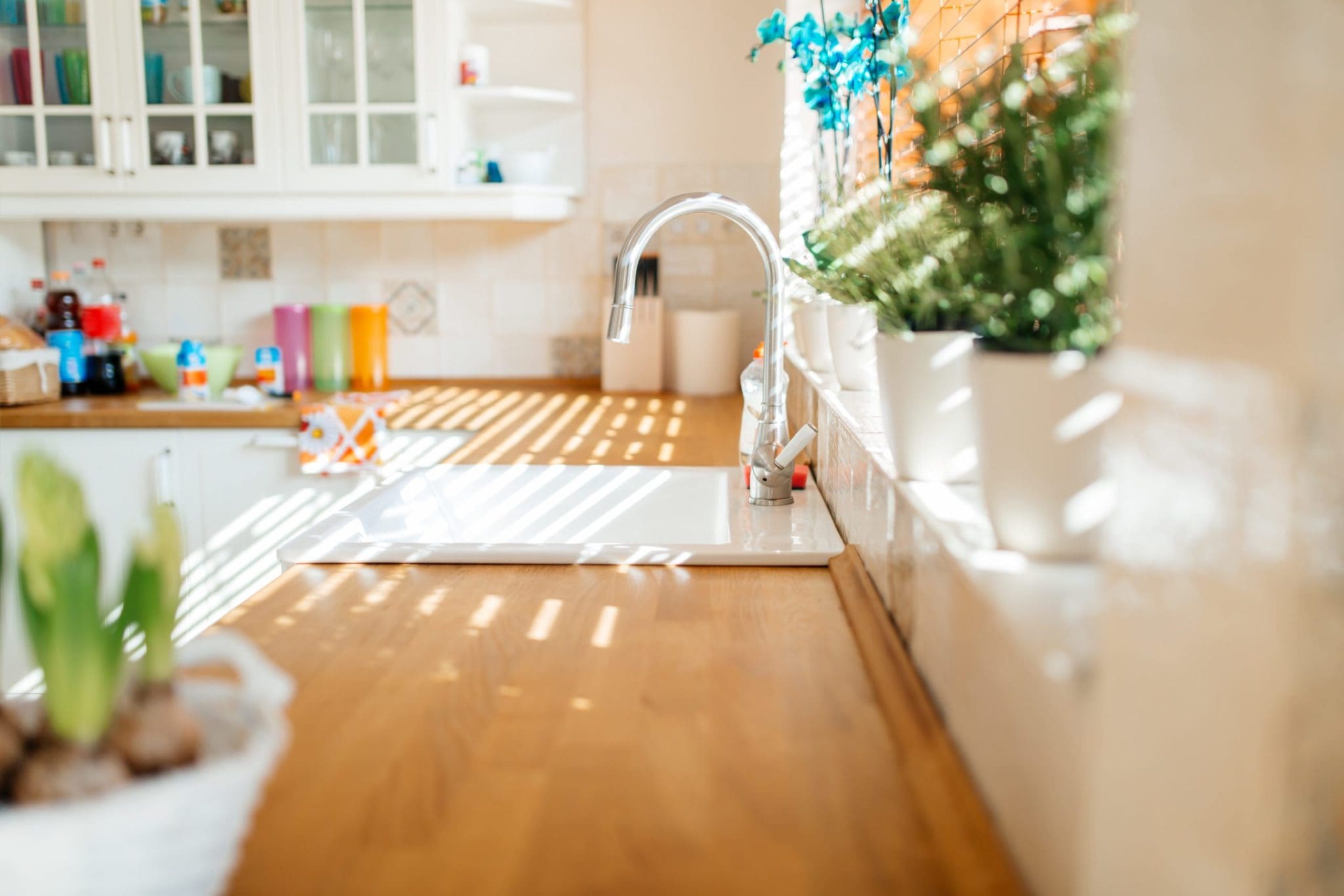




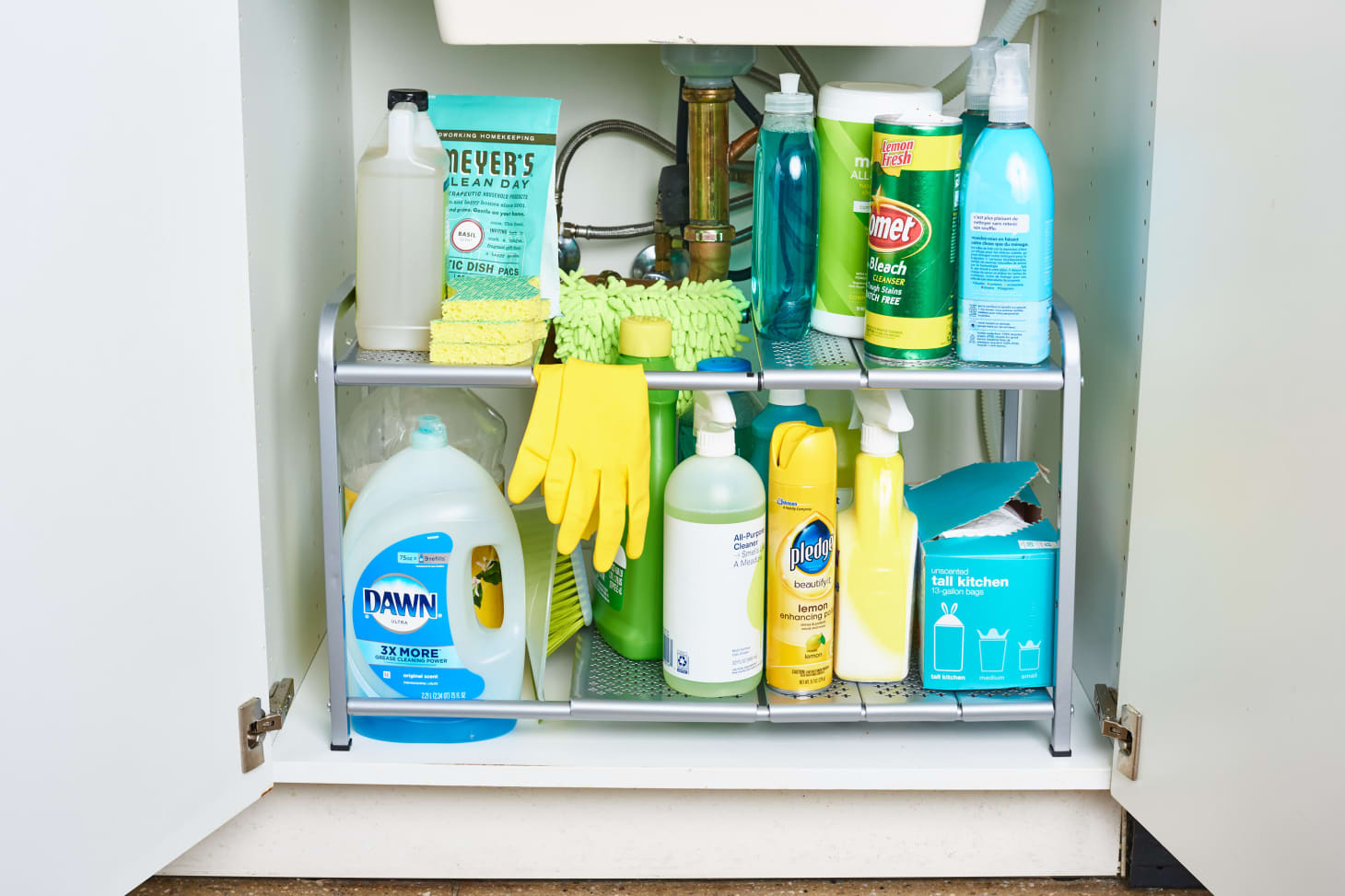
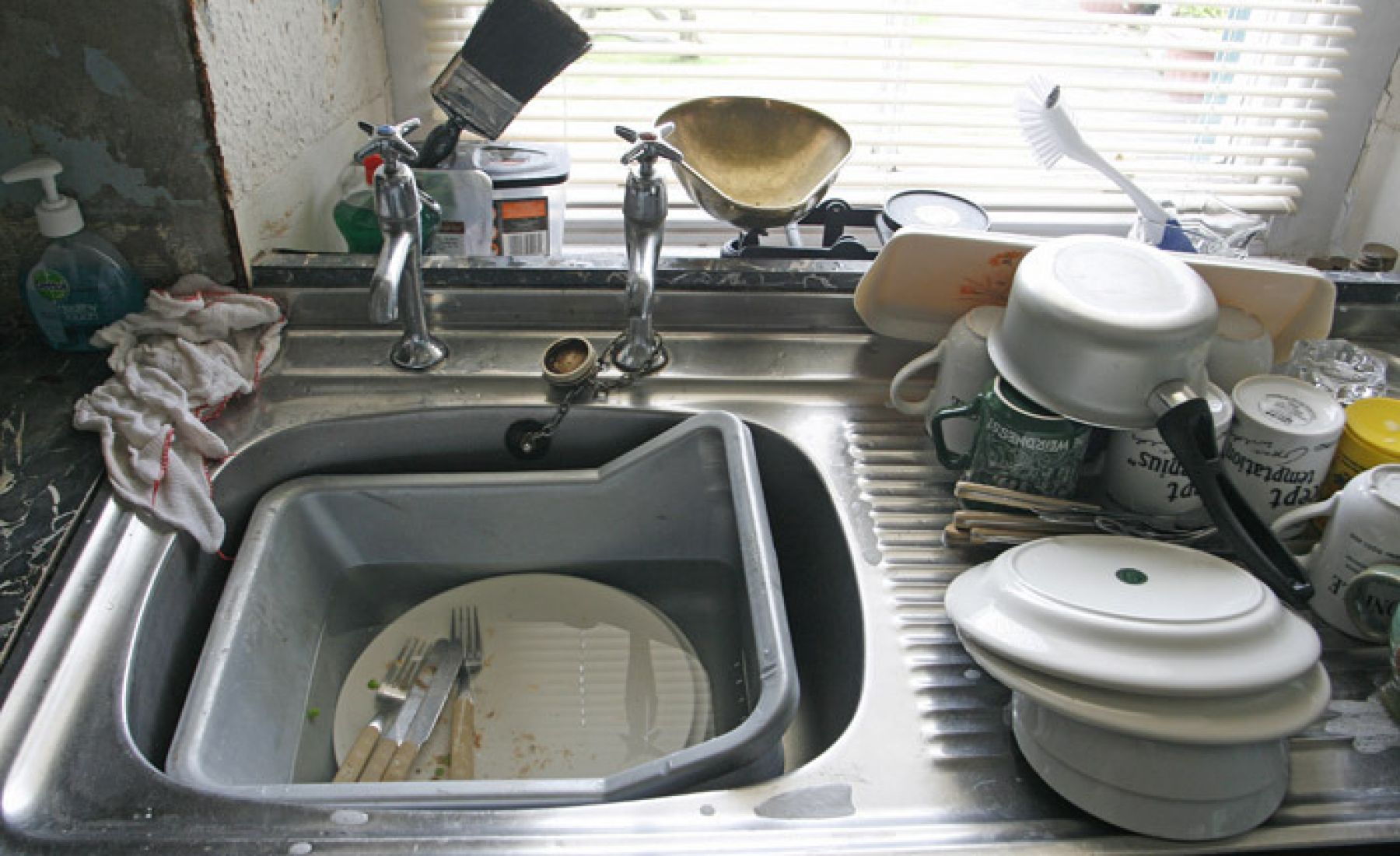
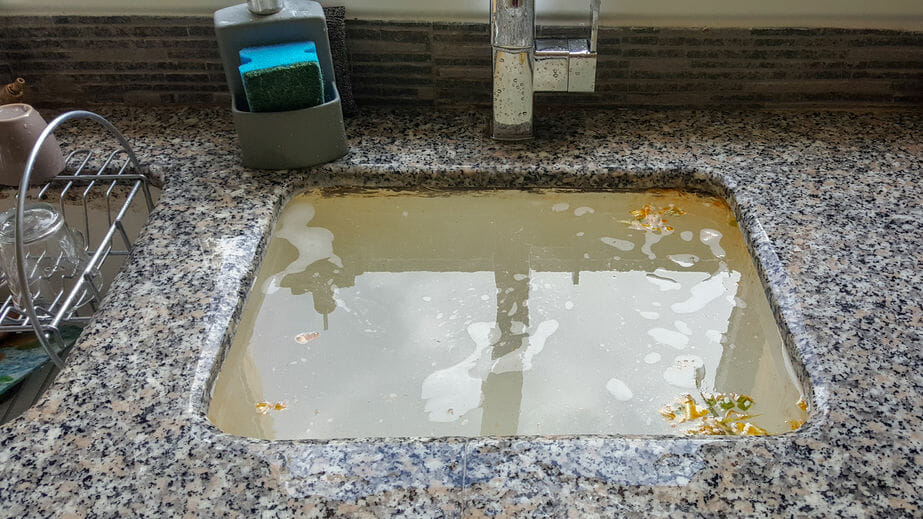



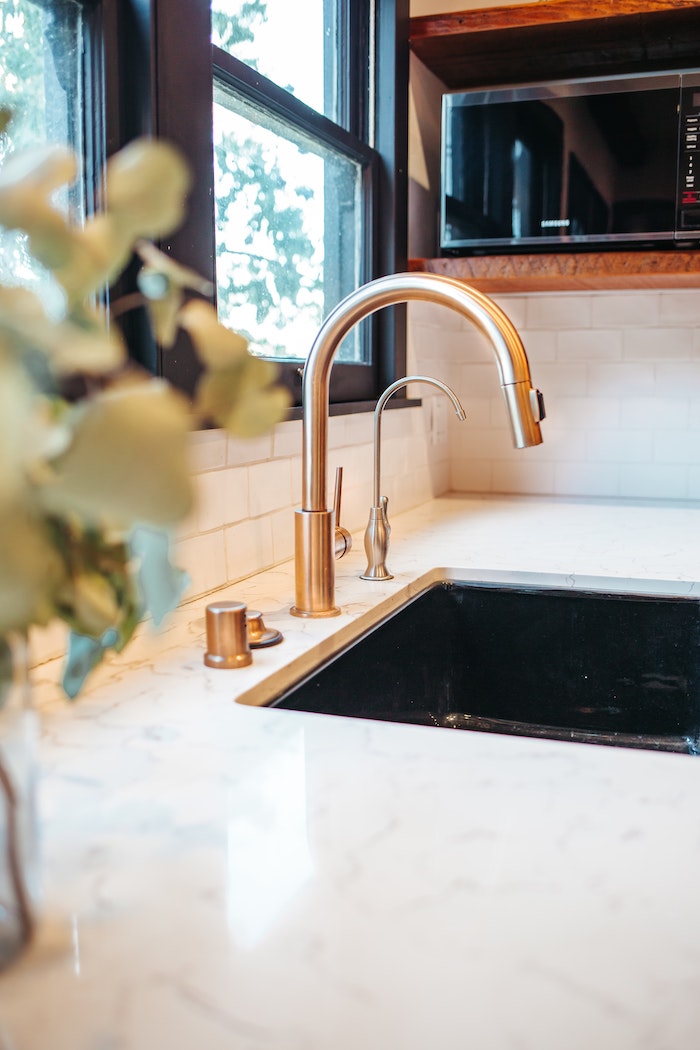
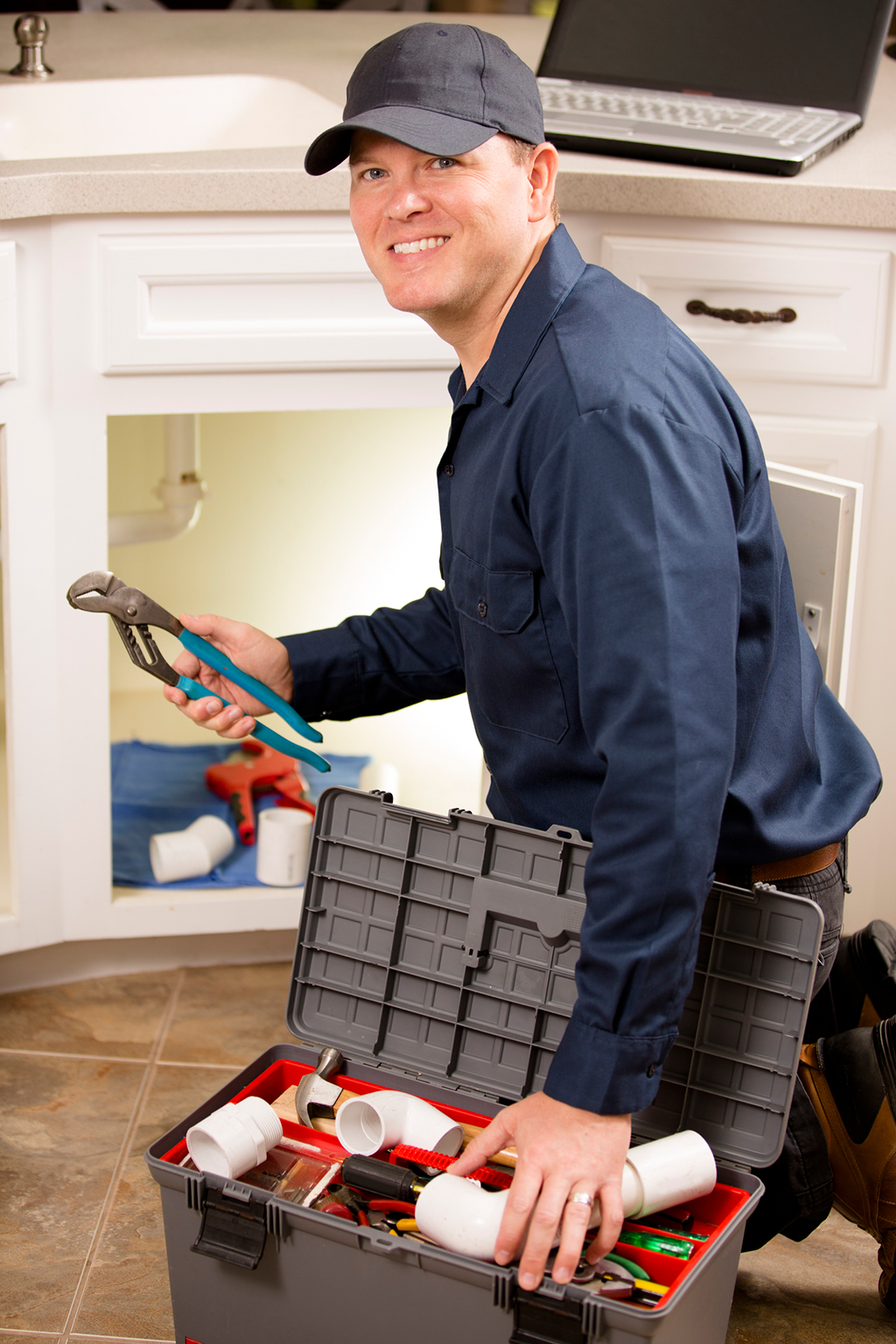

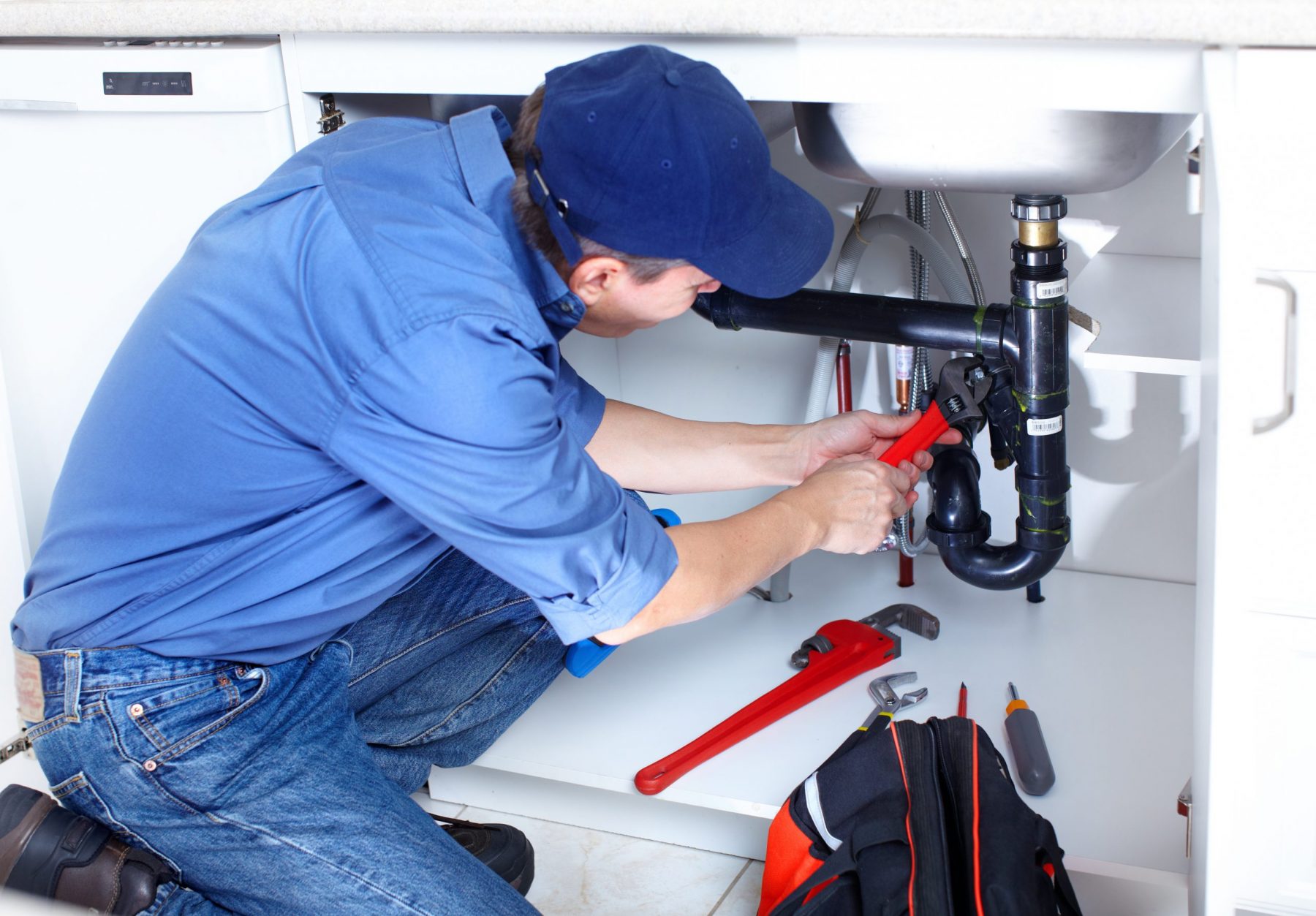
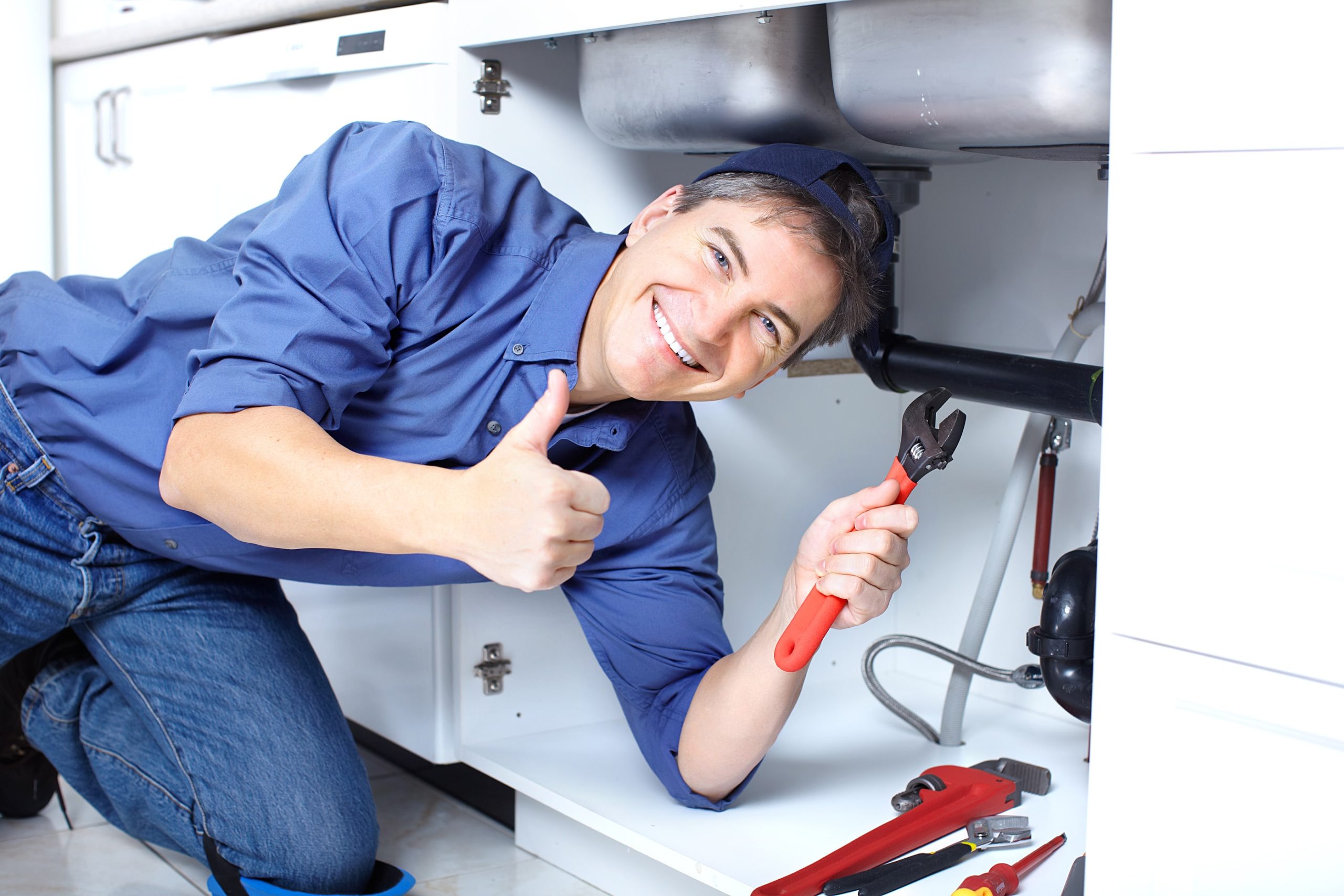
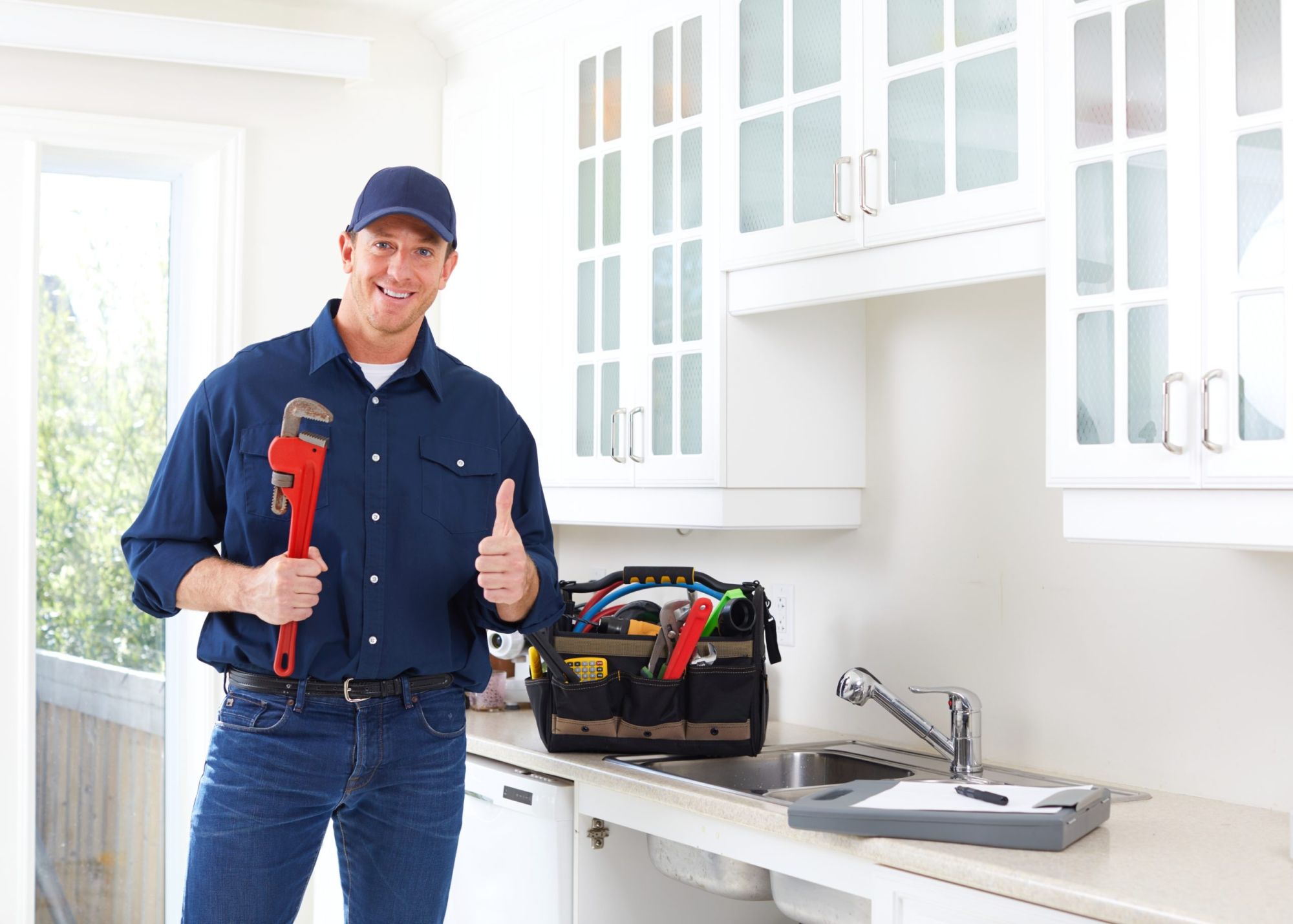





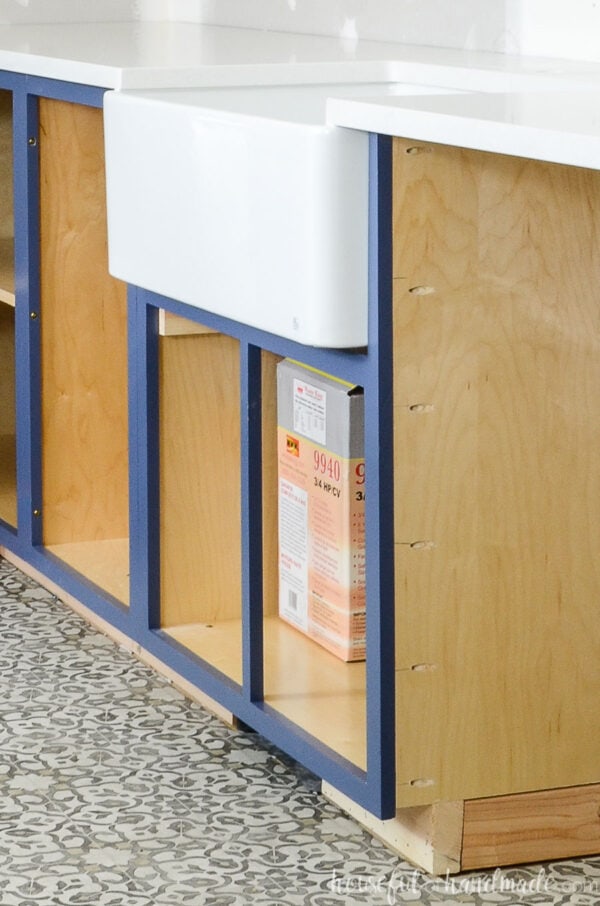





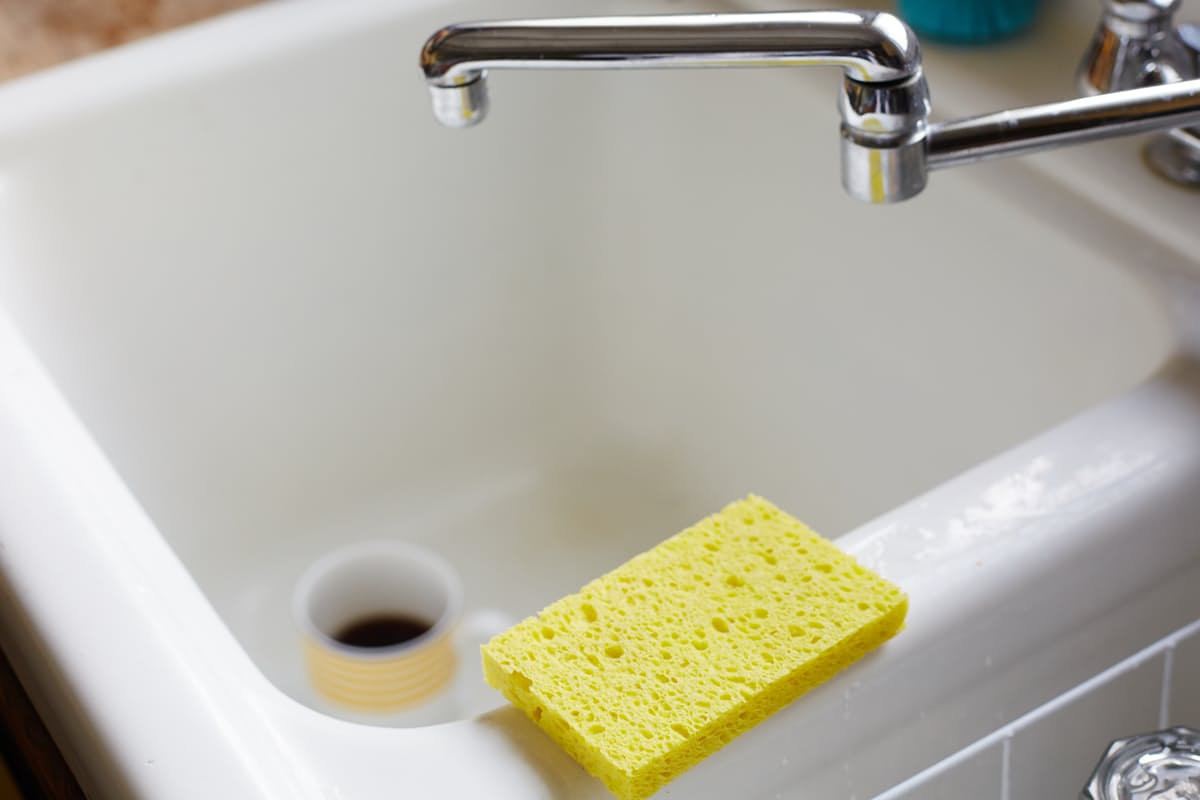







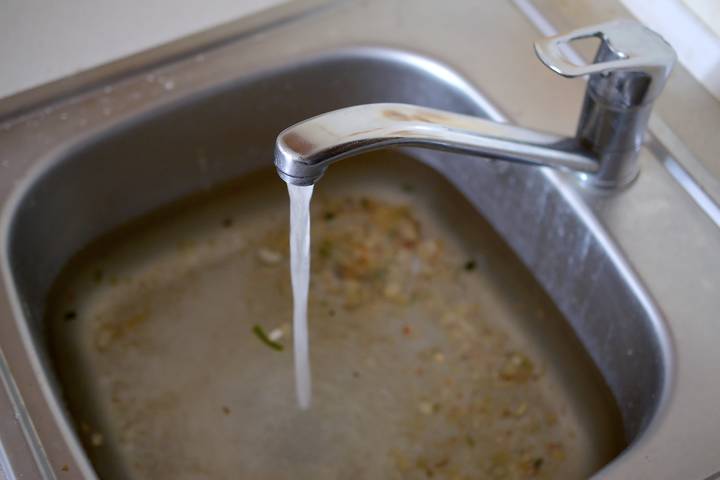






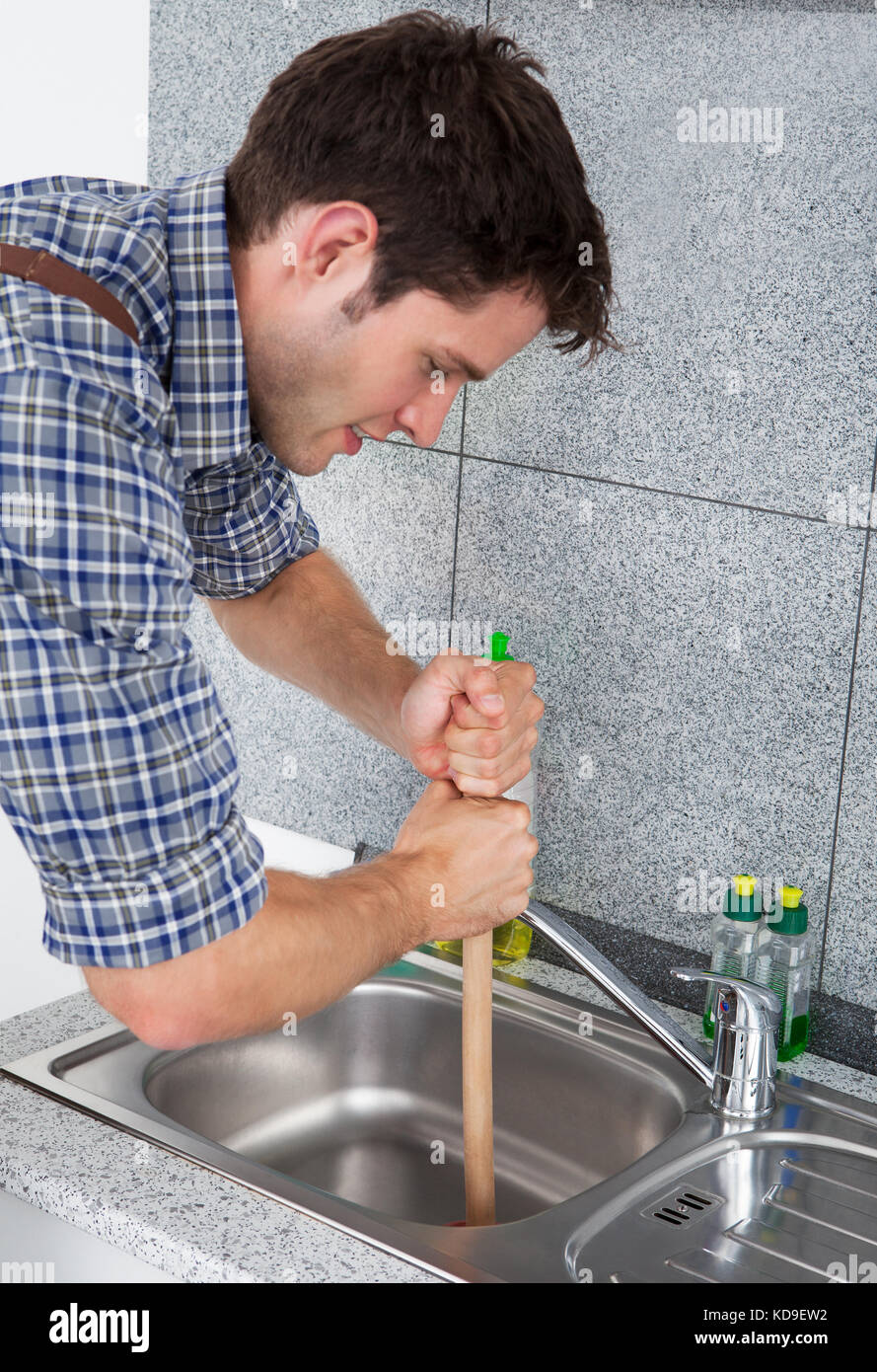
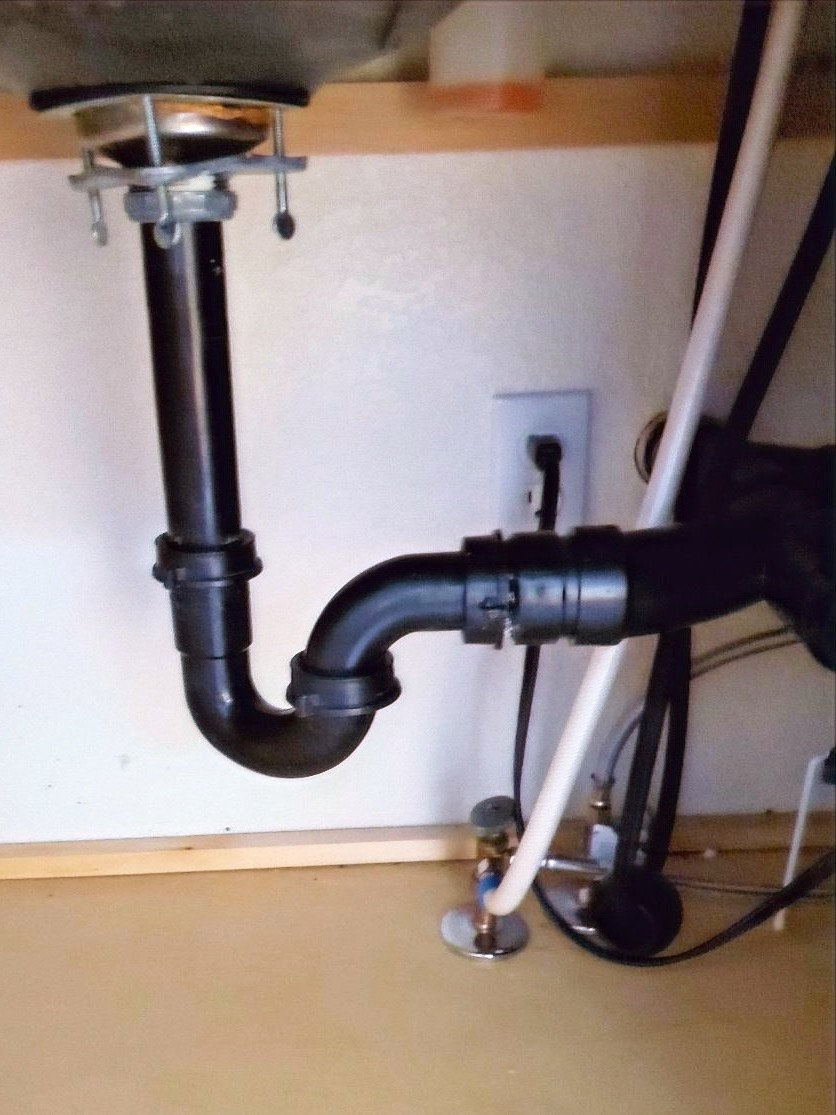

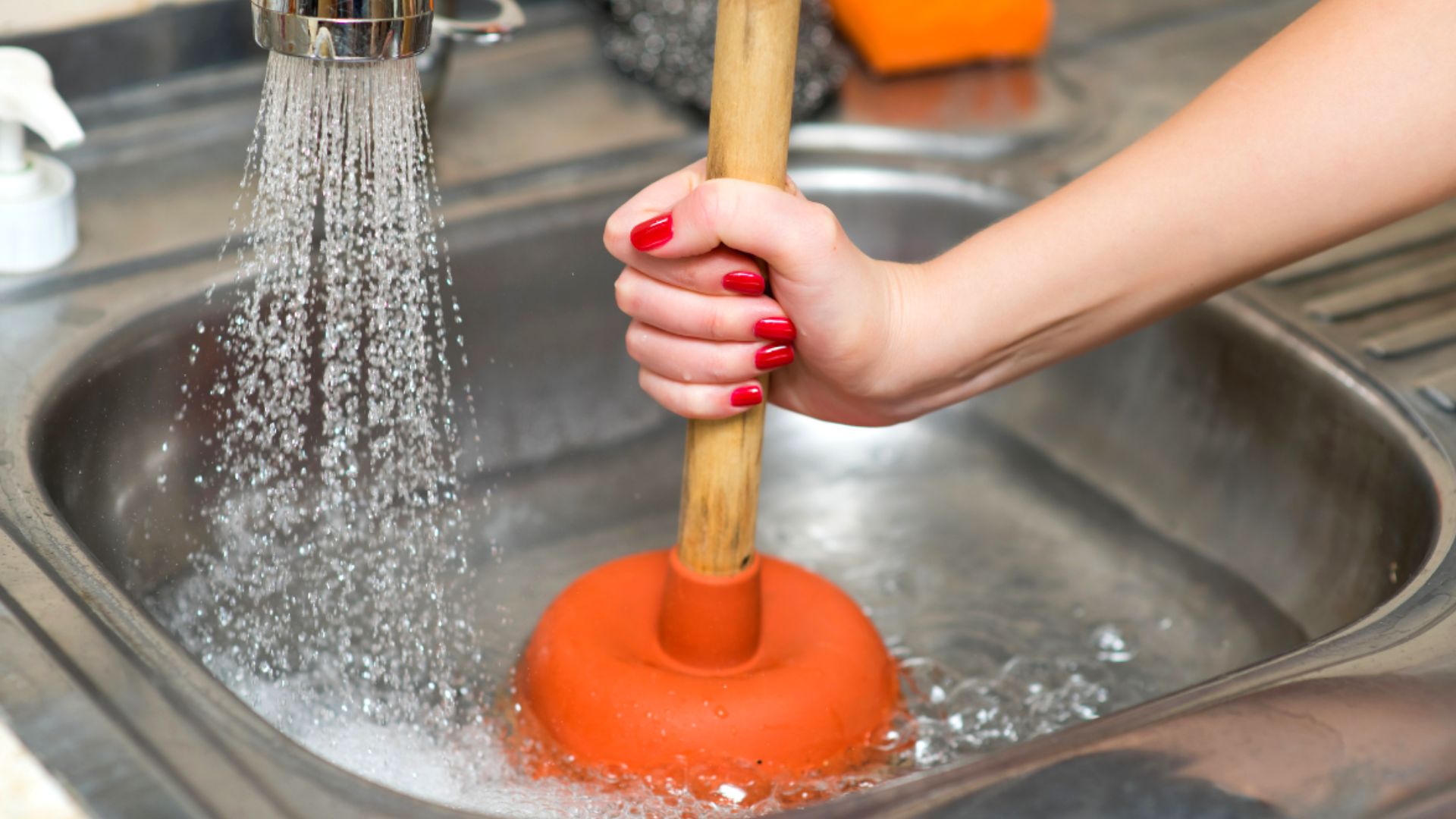
/woman-wearing-yellow-washing-up-gloves-to-unblock-sink-using-plunger-close-up-131987463-5887cfc03df78c2ccd92ec9e.jpg)










